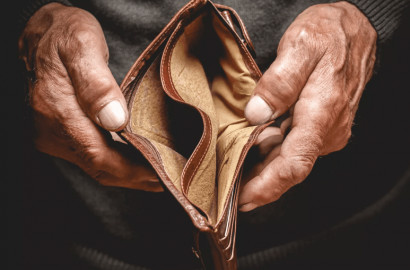Wananchi Opinion: This is how you build an emergency fund


Audio By Carbonatix
Many people today recognise the importance of having an emergency fund, yet the challenge often lies in how to build and sustain one when income is inconsistent.
Irregular income is common among freelancers, small business owners, casual workers, and even individuals whose pay depends on commissions or seasonal jobs.
Unlike those with predictable monthly salaries, such individuals must carefully balance periods of plenty with lean months.
Building an emergency fund under these circumstances is not only possible but also crucial for financial stability. It requires discipline, creative planning, and practical money management strategies.
The first step in starting an emergency fund with an irregular income is understanding its purpose.
An emergency fund is not meant for luxuries, impulse buying, or speculative investments.
Its primary role is to provide a financial cushion during unexpected situations such as illness, job loss, urgent repairs, or economic downturns.
Knowing this helps to keep one focused and motivated when saving seems difficult.
Once the purpose is clear, the next move is to define a realistic target. I recommend saving at least three to six months’ worth of expenses.
For someone with unpredictable income, it may be better to aim for six to twelve months, since lean periods can last longer than expected.
This goal may sound intimidating, but it is achievable when broken down into smaller, manageable steps.
Instead of focusing on the large figure, one should concentrate on saving bit by bit, consistently over time.
Budgeting plays a central role in this process. Unlike salaried workers who can allocate fixed amounts, those with fluctuating earnings should budget around their minimum monthly expenses, the bare essentials such as rent, utilities, food, and healthcare.
By identifying the lowest amount of money required to survive each month, one can plan savings around ensuring these essentials are covered first.
During months of higher income, extra money can be channeled into the emergency fund instead of being spent on non-essentials.
A practical way of saving irregular income is by adopting the “percentage method.” Rather than saving a fixed figure, one saves a percentage of whatever income comes in.
For instance, committing to set aside 20 percent of every payment, no matter how small, ensures that savings continue to grow.
When income is high, the savings are substantial, and during slow periods, one still contributes something, however modest. Over time, this consistent practice builds up a reliable cushion.
Separating emergency savings from everyday spending money is also critical.
Opening a dedicated savings account, preferably one that is not too easy to access, prevents the temptation of using those funds for ordinary expenses.
Some people even automate transfers into this account immediately after receiving payment.
Though irregular earners may not always be able to automate, prioritising the emergency fund at the point of receiving income is a powerful habit.
Paying yourself first ensures that savings are secured before money disappears into daily spending.
Maintaining the emergency fund requires as much discipline as starting it. One must resist the urge to use it for non-emergencies, such as buying new gadgets or going on vacations.
To avoid misuse, it helps to establish clear rules about what qualifies as a genuine emergency. Medical bills or unexpected rent increases are valid emergencies.
Buying a new phone because the latest model has been released is not. Having these rules written down can reduce impulse withdrawals.
Another strategy for maintaining the fund is to replenish it whenever it is used. Emergencies are unpredictable, and sometimes savings will be tapped into.
Once the crisis passes, it should be treated as a priority to rebuild the fund, even if it means starting with small amounts again. This mindset ensures the fund is always available for future needs.
Irregular earners must also cultivate financial resilience by controlling lifestyle inflation. During good months, it is tempting to spend lavishly, assuming that more money will keep flowing in.
Yet, the reality of fluctuating income means that high spending in good times often leads to stress in lean times.
Living below one’s means during prosperous periods not only leaves more room for saving but also ensures that one is accustomed to modest expenses when income drops.
Building an emergency fund while earning irregularly is challenging, but it can be done with focus, discipline, and smart habits. It begins with understanding its purpose, setting realistic goals, and budgeting around essentials.
Saving a percentage of income, separating funds into a dedicated account, and maintaining strict discipline about withdrawals keep the fund intact.
Replenishing it after use and avoiding lifestyle inflation help sustain it over the long term.
With these strategies, even those with unpredictable earnings can achieve financial stability and peace of mind.
Mr. Abol Kings is a personal finance coach


Leave a Comment